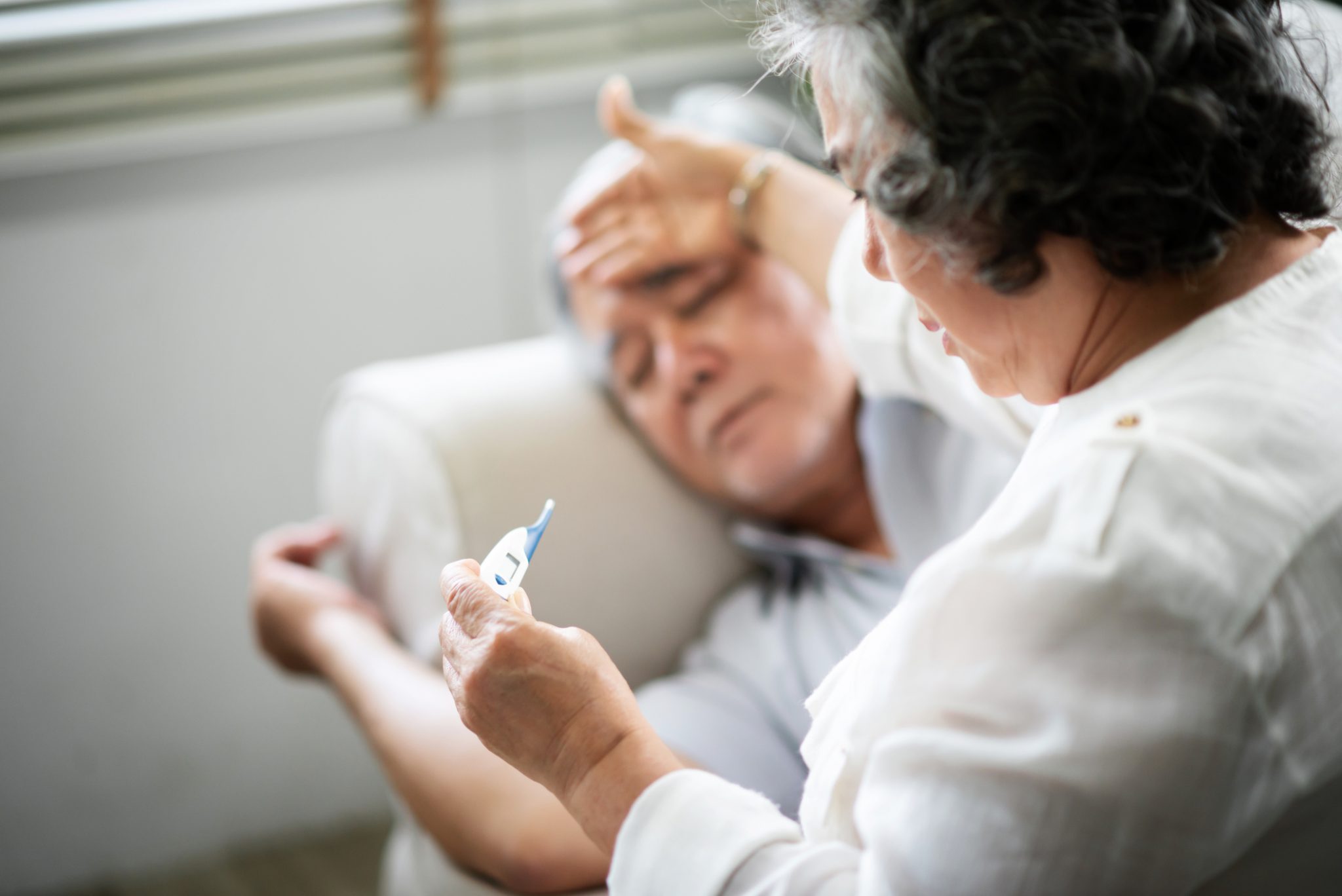How to Properly Wear a Facemask

November 09, 2021
When used correctly, face coverings can help protect those you may come into contact with if you are infected but do not show symptoms.
Here’s what you need to know about helping slow the spread of COVID-19 by using a face covering.
What Can I Use as a Face Covering?
The CDC continues to recommend that medical-grade masks, such as surgical masks and N95 respirators, stay reserved for health care workers and other medical first responders since those are still in short supply. But simple cloth face coverings using household items or made from common materials can do the trick.
The CDC offers instructions on creating face coverings from cotton fabric and elastic, a bandana or even an old T-shirt.
How Should I Wear a Face Covering?
To properly wear a face covering:
- Always cover both your mouth and nose with it.
- Ensure it fits snugly but comfortably against the sides of your face.
- Secure it with ties or ear loops.
- Press down on the area around your nose to make sure the mask molds to your face as much as possible.
It’s also important to remember that every time you adjust your face covering or take it on and off, you’re touching your face. Be careful not to touch your eyes, nose or mouth when removing your face covering, and wash your hands immediately after doing so.
How Do I Clean a Reusable Face Covering?
Reusable face coverings should be washed regularly, ideally after every use. You can use the washing machine and even wash it with other clothes. If you don’t have a washing machine, hand wash your face covering with warm or hot water and soap.
How Can I Keep My Glasses From Fogging up While Wearing a Face Covering?
To prevent eyeglasses or sunglasses from fogging up, try these tips:
- Wash your glasses with soap and water before wearing your face covering. (Dish soap works well.)
- Spray your glasses with snow goggle anti-fog spray before wearing your face covering.
- Place a folded paper towel or tissue between your mouth and face covering to absorb the moist, warm air.
Should My Kids Wear Face Coverings?
Children over the age of 2 should wear face coverings in public places where they might not be able to maintain a 6-foot distance from others, such as the doctor’s office or grocery store. They might not need a covering when they’re in uncrowded outdoor areas, such as during a walk in the neighborhood.
If your children are resistant or even afraid to wear a face covering, try these tips:
- Let them decorate their covering to make it personalized and fun.
- Put a face covering on their favorite stuffed animal.
- Practice wearing the face covering at home before they’re needed outside of the home.
The material provided through HealthU is intended to be used as general information only and should not replace the advice of your physician. Always consult your physician for individual care.
Find a doctor near me
The New Variants of COVID-19, Explained

Understand new COVID-19 variants. Learn about their spread and how to protect yourself. Expert insights. Stay safe.
What Makes a Child Tic?

Understand child tics? Dr. Khrizman explains causes, management, and when to seek help. Learn more and find support.
Find a doctor near me

How to Take Care of a Loved One with Coronavirus
Care for a loved one with coronavirus? Learn essential steps for home care and protecting yourself. Get helpful guidance now.

Tips for Parents of Children with Autism Spectrum Disorder
The management of autism spectrum disorder (ASD) often relies on routine and regularity, however the coronavirus (COVID-19) pandemic has massively impacted many families’ ability to provide this structure.

Reduce Your Fear of Needles
A fear of needles can seem debilitating. Here are some tips to help overcome the phobia.

Do Masks Really Work?
Learn how masks prevent COVID-19 spread. Dr. Bader explains mask effectiveness. Get expert advice and schedule an appointment today.
